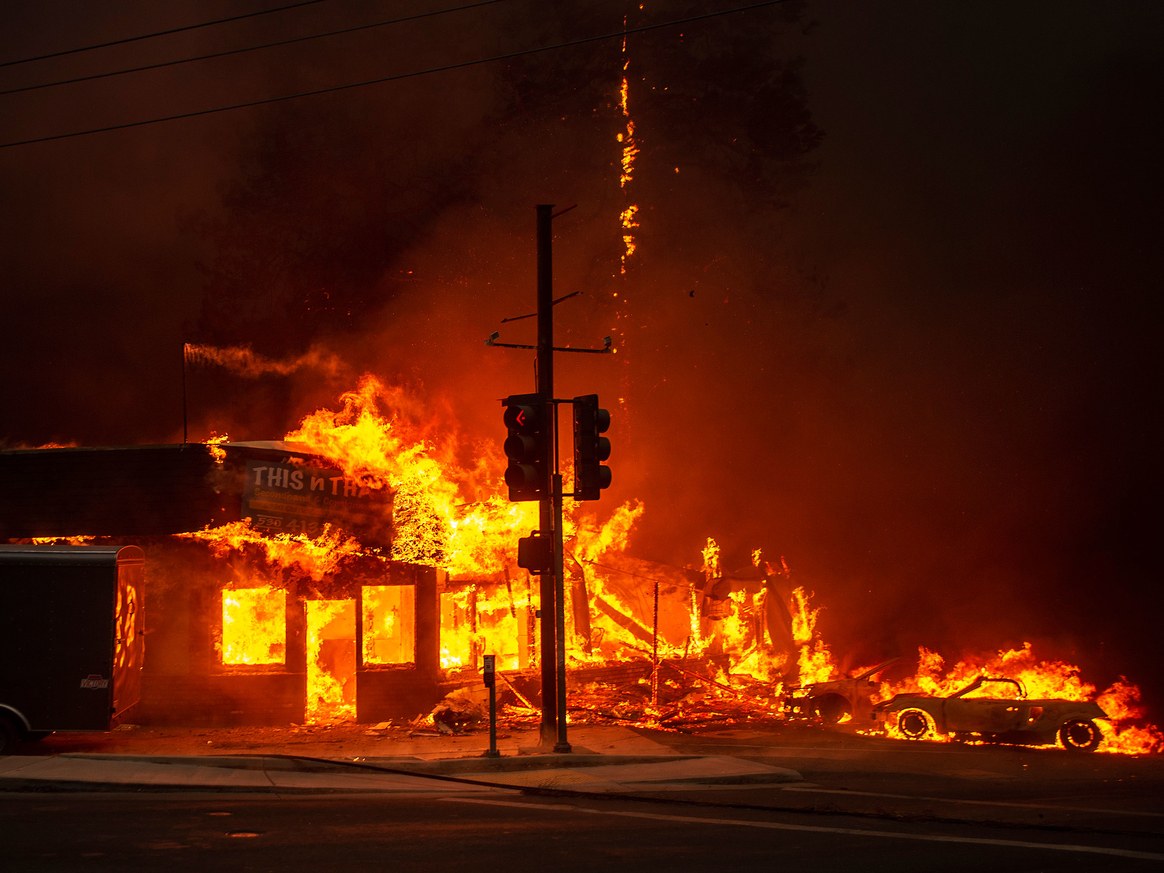ImpactAlpha, January 16 – Staid and stable utilities have long been viewed as safe investments. Climate change has disrupted that assumption, at least in California, where PG&E indicated it would seek bankruptcy protection by the end of the month. The utility may be liable for more than $30 billion in damages from wildfires in 2017 and 2018.
The company’s stock has slid from more than $48 a share in early November to barely $7 yesterday; more ominously, the company said it wouldn’t make interest payments due Wednesday on bonds maturing in 2040. Bank of America Merrill Lynch said more than $17 billion of PG&E bonds face default, which could vault PG&E into the ranks of Lehman Bros. and WorldCom on the list of largest investment-grade defaults.
The company, and former CEO Geisha Williams, have argued the company is a victim of what it calls “climate-driven extreme weather,” which made the fires hotter and more destructive. The New York Times cited energy experts who said PG&E’s bankruptcy is “one of the first major financial casualties from climate change — and far from the last.” Under California law, PG&E is liable for damages caused by its equipment; the state legislature granted some relief after last year’s fires but is considered unlikely to do so again.
- Shareholders are likely to get wiped out. The largest institutional holders of PG&E’s shares, as of last August, were Blackrock (9.4%), Vanguard (7.3%) and State Street (4.8%). Bondholders also expect losses.
- Climate disruption. “There’s a long list of those at risk, including farmers, homebuilders and insurers,” Bloomberg reported. An Entergy Corp. unit in New Orleans declared bankruptcy after Hurricane Katrina decimated its customer base. Hurricane Harvey in Houston helped do in ExGen Texas Power. More recently, California regulators took control after claims from the Camp Fire overwhelmed Merced Property and Casualty Co.
- PG&E’s climate-change arguments “mark a reversal of the typical trend, in which plaintiffs use climate change to seek damages from large corporations,” notes Pacific Standard.












